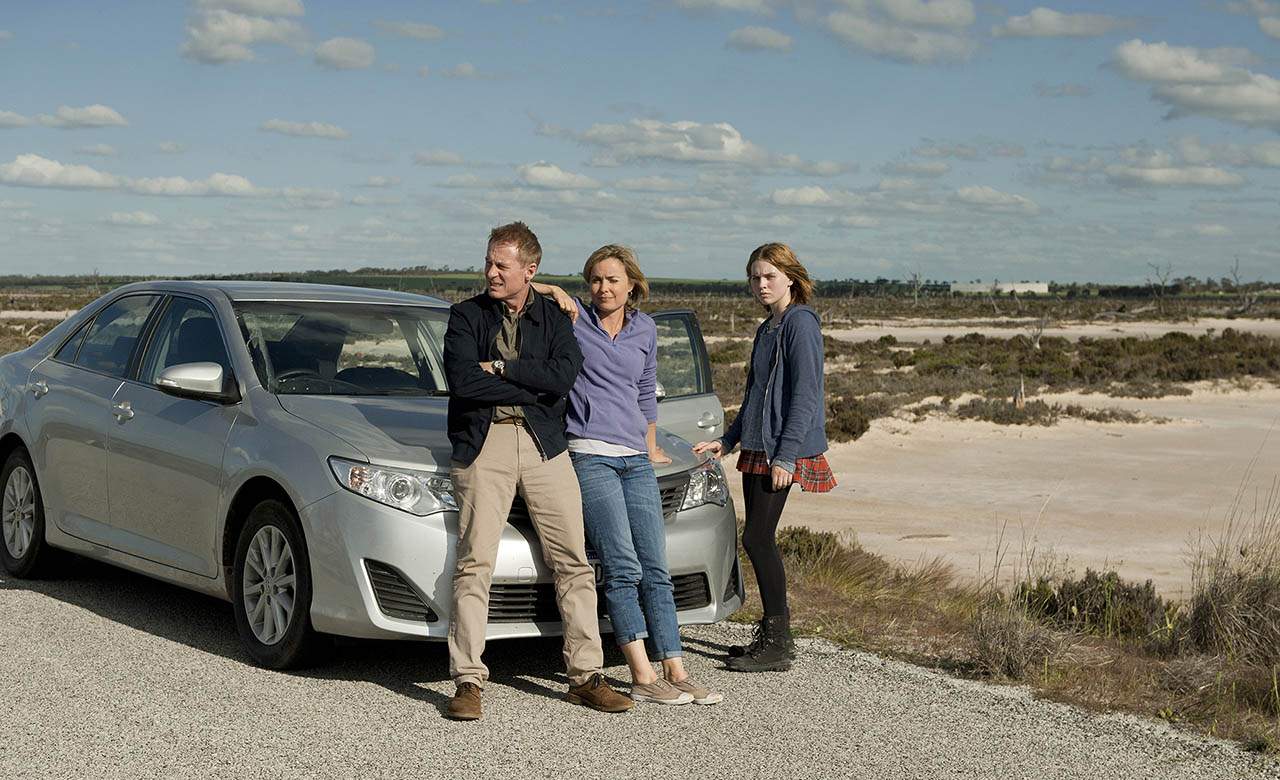Looking for Grace
This earnest local drama benefits from some sensational performances.
Overview
A teenager runs away with her best friend. Her distraught parents search for her. A retired detective lends a hand — and the situation he uncovers is both quite ordinary and a little bit odd. If there's one thing that Looking for Grace recognises, it's that daily life can be equally routine and strange. A tense scenario can have a lighter side. Stress can turn to laughter. In dramatic circumstances, people don't always know how to behave.
No one — not the eponymous Grace (Odessa Young), her pal Sappho (Kenya Pearson), mother Denise (Radha Mitchell), father Dan (Richard Roxburgh) or former cop Tom (Terry Norris) — really knows what they're doing, particularly after the girls and a secret stash of cash goes missing. Trekking across Western Australia to attend a concert, Grace is happy flirting with a charismatic traveller (Harry Richardson), though Sappho is less content being the third wheel. At home, Denise tries to remain calm, while Dan is distracted by the affair he's been trying but failing to have with an employee (Tasma Walton).
Their individual tales are offered up in chapters, splitting the broader narrative into separate but interlocking strands. Some details are revealed early, with Grace's section served up first, while other inclusions — the brief segment focusing on truck driver Bruce (Myles Pollard), for example — only become significant once all the pieces have been put together. Such fragmentation may help extend an otherwise slight effort, but it proves the least convincing aspect of the film. Thankfully, the feature's structure also highlights its strengths: the characters, the multitude of realistic reactions to their various predicaments, and the fine-tuned performances of the actors who play them.
Indeed, Looking for Grace works best both as a series of character studies and as a showcase for the talents of its key cast. Writer/director Sue Brooks fleshes out the former more than the slender story might seem to indicate, and benefits from the latter, especially where the trio of Young, Roxburgh and Mitchell are involved. Young sells a crucial mix of confidence and restlessness, while Roxburgh ensures his troubled everyman never comes across as pathetic, even when Looking for Grace veers into suburban parody. Often caught between the two, the pitch-perfect Mitchell proves the feature's standout player, as well as a weathervane for its mood and fortunes. When she's hitting the mark, so is the film.
Elsewhere, Brooks continues the love affair with the Australian landscape she started in 1997's Road to Nhill and furthered in 2003's Japanese Story. In fact, cinematographer Katie Milwright's dusty visuals provide the perfect counterpoint to the helmer's fondness for stylisation, with Looking for Grace also an exercise in contrasts. Brooks frequently layers conflicting elements over the top of each other, such as jaunty music over sparse images, to ensure the clash of the usual and the not so is always apparent. The movie veers in tone as a result, sometimes jarringly so — but just like life, it works much more often than it doesn't.





